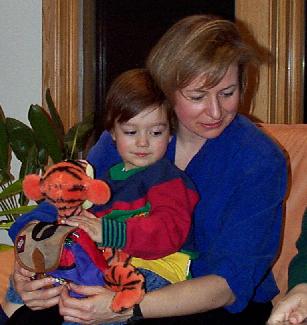
The Affective Tigger project is part of a larger field of research called Affective computing [Picard, 1997]. This group is focused on combining computer science with emotion research. This excerpt from the Affective computing web page, explains the larger goal of the Affective computing group. These goals also apply to the Affective Tigger project.
Affective computing is computing that relates to, arises from, or deliberately influences emotions. Our research focuses on creating personal computational systems endowed with the ability to sense, recognize and understand human emotions, together with the skills to respond in an intelligent, sensitive, and respectful manner toward the user and his/her emotions. We are also interested in the development of computers that aid in communicating human emotions, computers that assist and support people in development of their skills of social-emotional intelligence, and computers that `have' emotional mechanisms, as well as the intelligence and ethics to appropriately manage, express, and otherwise utilize these `emotions.' Embracing the latter goal of `giving machines emotions' is perhaps the most controversial, and is based on a variety of scientific findings, which include indications that emotion plays a crucial role in enabling a resource-limited system to adapt intelligently to complex and unpredictable situations.In short, we think mechanisms of emotion will be needed to build `human-centered' machines, which are able to respond intelligently and sensitively to the complex and unpredictable situations common to human-computer interaction. Affective computing research aims to make fundamental improvements in the ability of computers to serve human users, including reducing the frustration that is prevalent in human-computer interaction. We expect that efforts in building affective computers will also facilitate substantial contributions to research on basic human emotions [Group, 1999, About Affective Computing,].